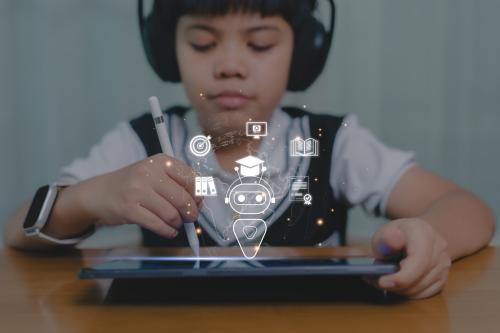In a recent paper Benjamin Wittes and Jodie C. Liu highlight issues with how people evaluate the gains or losses in privacy that come along with a new technology. Many describe privacy as a value that is distributed uniformly across entire populations. For example technologies that enable government surveillance or corporate uses of Big Data are treated as negatively impacting every person’s privacy. Wittes and Liu argue that new technologies may both enhance and degrade privacy differently for individuals depending on their specific preferences. Many people have concerns about unwanted surveillance from the government or large companies. But, others are far more concerned about potential privacy violators like family members or work colleagues. The paper describes three categories of privacy gains offered by new technologies.
Private learning
The Internet is a powerful tool for answering questions quickly. Learning through a search engine or Wikipedia articles can also enhance privacy. In today’s rapidly evolving pop culture many people have surreptitiously used Urban Dictionary to learn the meaning a new phrase to save the embarrassment of asking a friend. The Internet is also a powerful tool for adolescents who are confused about their own sexuality and want to avoid awkward conversations with their parents. Many people use the Internet to learn about sexually transmitted diseases or other health problems while averting a visit to their doctor. The ability to quickly pick up a new piece of knowledge while enjoying privacy from the judgement of others is a major value.
Private E-Commerce
The conventional narrative dictates that E-Commerce is a privacy eroding activity. Larger corporations keep vast databases of information on online shopping habits. Digital platforms also enhance privacy when a person wants to keep a specific purchase private. Many people may feel uncomfortable purchasing products that prevent pregnancy or sexually transmitted infections. The portability of smart phones and e-readers also makes it easier to consume different types of media. A person reading 50 Shades of Grey with an e-reader rather than a traditional book has enhanced privacy because there is no book cover upon which people may snoop. It’s also possible to purchase the book without visiting a library or bookstore. Technology and the Internet have to buy and consume products in private.
Privacy is not a zero sum game. An individual’s constellation of preferences about privacy depends on the situations in which they want to keep personal information secure. Policymakers should pass legislation to protect individuals against unforeseen privacy encroachments by organizations in the public and private sectors. But, draconian solutions that operate with the assumption that information and communication technologies are an existential threat to privacy could have serious unintended consequences.
The Brookings Institution is committed to quality, independence, and impact.
We are supported by a diverse array of funders. In line with our values and policies, each Brookings publication represents the sole views of its author(s).




Commentary
Little discussed ways that technology enhances privacy
May 26, 2015